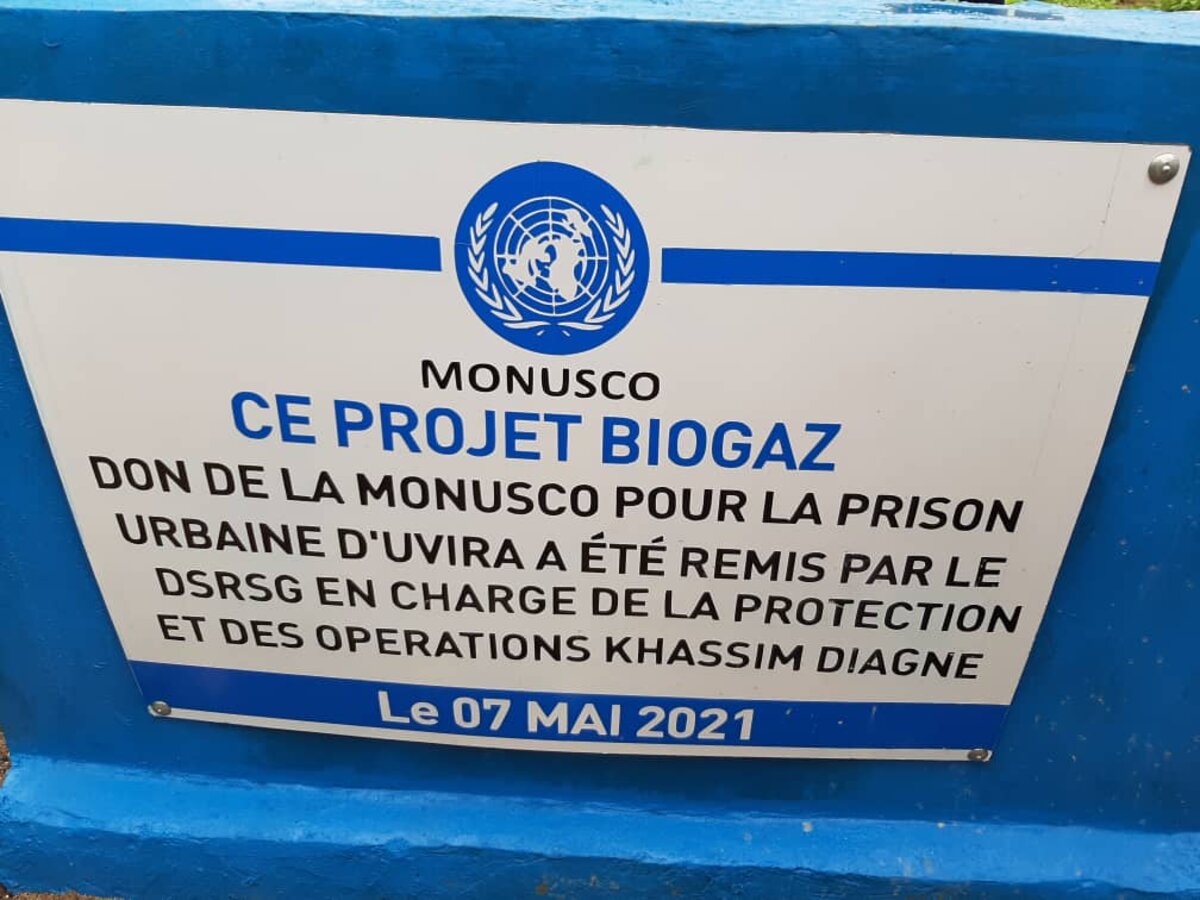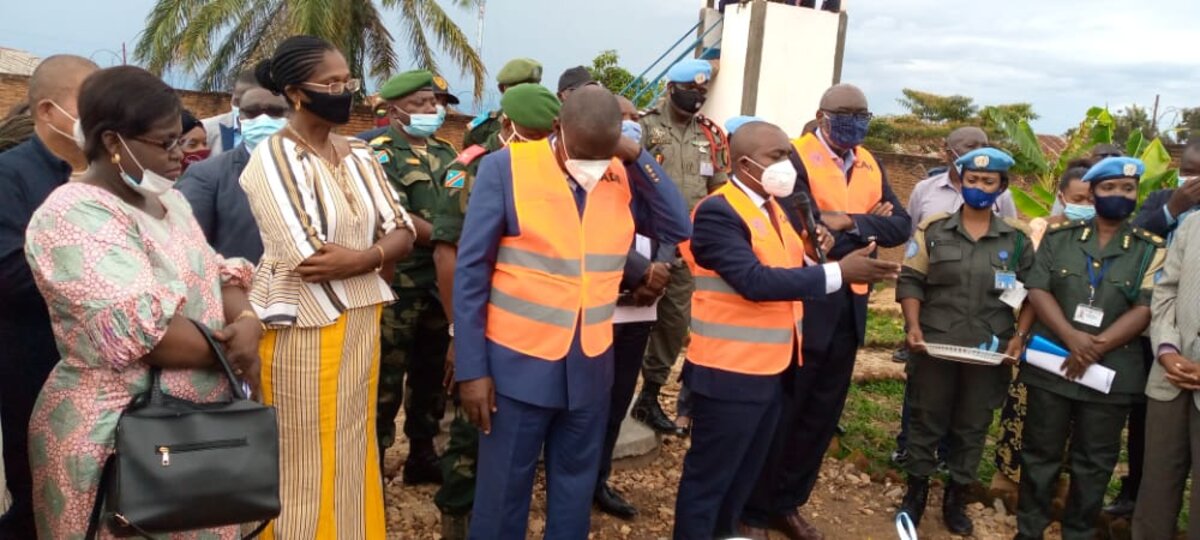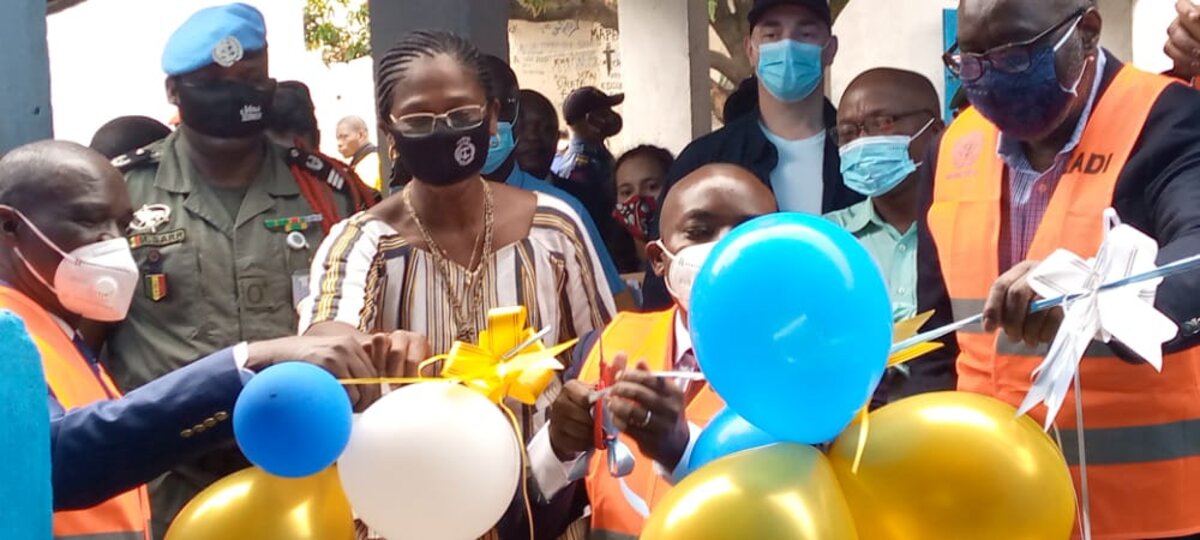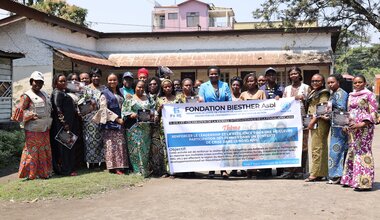South Kivu: Biogas for Uvira central prison
Inmates in Uvira central prison, South Kivu province now have a new source of combustible energy: biogas. With MONUSCO funding, a pilot biogas project was inaugurated in this prison last May. On top of this project, the construction of a bakery, the implementation of a fish farm as well as the renovation of a facility for women.

These projects were officially launched by the Deputy Special Representative, in charge of protection and operations, Khassim Diagne, last May in Uvira; in attendance, the provincial Minister of Justice, representing the provincial governor, the head of the prison administration, the director of the military prison, the mayor of Uvira, as well as several other Congolese officials and representatives of MONUSCO and agencies of the United Nations system, not to mention the representatives of the local civil society organizations.
"MONUSCO provides support to the Congolese authorities’ efforts to stabilize the east of the country and its efforts are not only about military support but as well as support to the restoration of the rule of law and the institutional reforms undertaken by the Congolese government to help pacify the eastern areas,” explained Khasim Diagne.
While acknowledging that MONUSCO’s activities also include "support to the Congolese security defense forces which the populations are aware of", the Deputy Head of the Mission clarified "there is a whole program behind which effectively aims to strengthen the capacity of the Congolese government and of the Congolese authorities, especially at the provincial and local levels."
For his part, the mayor of the city, Kiza Muhato, praised the efforts made by MONUSCO correction support unit to improve living conditions in prisons, as part of its mandate to fight impunity.
“The city of Uvira, which is only 2 years old, currently has a multipurpose room at the town hall, a biogas system, a bakery and a fishing unit launched at the urban central prison of Uvira. May the entire Monusco team find our feelings of gratitude and encouragement here,” he said.

The biogas project comes in at the right time for this prison, built in 1948. With an average accommodation capacity of 150 inmates, it currently accommodates 1281 inmates, including nine women, and some 21 minors, not separated from adults.
The extreme overcrowding has put a strain on the prison's sewage system, causing fecal waste to dump around the prison perimeter. This has resulted in the emergence of water-borne diseases and breeding grounds for mosquitoes, leading to a substantial increase in disease cases.
In addition, the sewage discharge has polluted the environment and the community constantly complains about bad odors, which is also a permanent danger to the population. Especially that the waste from the prison is one of the factors for the pollution of the Lake Tanganyika.
The biogas project has therefore come in to solve a major health problem, by eliminating organic waste from the circuit, which will now be transformed into combustible gas. It will also improve hygiene and provide an alternative source of energy for the prison. The project cost a total of US $ 47,169.28, of which US $ 32,169.28 from MONUSCO Correctional Unit program funds and the remainder US $ 15,000 from the Mission's Quick Impact Projects Fund.
The said project was executed in early 2021 by experts from Rwanda, with Prison Fellowship-DRC as an implementing partner.
Biogas is a gas produced by the fermentation of organic matter in the absence of oxygen. This combustible gas is mainly composed of methane and carbon dioxide. It can be burned where it is produced to obtain heat and electricity.

In addition to Biogas, other projects have been carried out by MONUSCO in this prison.
“A fence wall was built and a concertina [barbed wire] was laid. Four watchtowers were built; now there is the biogas project. Woman's ward was also built to separate them from men. We actually intend to explore means and ways to increase the capacity of this prison,” explained Mrs. Patience Sai, Head of the Correction Unit.
 UN
UN United Nations Peacekeeping
United Nations Peacekeeping






